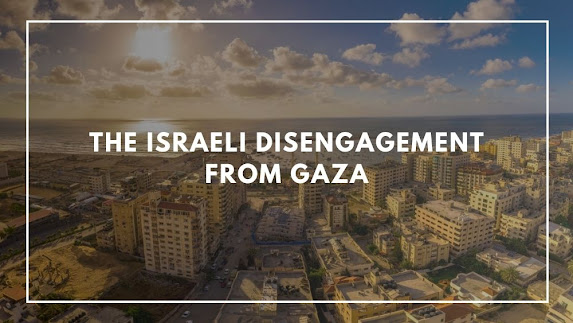The Complex Reality of Gaza: Unveiling the Truth Behind Israel's Disengagement
In the contentious landscape of the Israeli-Palestinian conflict, one of the key flashpoints that often stirs emotions and fuels debates is the situation in Gaza. While some narratives portray Israel as the sole aggressor and oppressor in the region, a closer look at the historical facts reveals a more nuanced and complex reality.
In 2005, Israel made a bold and unprecedented move by unilaterally withdrawing its military and settlements from the Gaza Strip, a move that was hailed by many as a step towards peace and Palestinian self-governance. Instead of seizing the opportunity to build a prosperous and peaceful society, the people of Gaza faced a crucial crossroads.
The infrastructure left behind by Israel in Gaza could have laid the foundation for economic growth and development, potentially transforming the region into a thriving hub akin to Singapore or Hong Kong in the Middle East. However, the path chosen by the leadership of Gaza took a starkly different turn.
Hamas, a militant group committed to the destruction of Israel, seized power in Gaza through force and intimidation. Instead of prioritizing the well-being of its people, Hamas embraced a violent ideology that prioritized terrorism and conflict over dialogue and cooperation. This choice had grave consequences for the people of Gaza and the region as a whole.
Random terrorist attacks against Israeli civilians became a grim reality, leading to a cycle of violence and retaliation that further deepened the divide between the two sides. In response to these security threats, Israel was forced to implement measures to protect its citizens, including restrictions on the movement of people and goods in and out of Gaza.
Contrary to the distorted narratives propagated by some activists and academics, it is essential to recognize that the situation in Gaza is not solely a result of Israeli actions. The decisions made by Hamas and other militant groups have played a significant role in shaping the current reality, perpetuating a cycle of violence that continues to inflict suffering on both Israelis and Palestinians.
Moreover, the characterization of Israel as an apartheid state is a gross misrepresentation of the complex social and political landscape within the country. Israel is a vibrant democracy where people of all backgrounds, including Muslim Arabs, have equal rights under the law. Arab citizens of Israel serve in the Knesset, the Israeli parliament, and hold positions of influence and authority across various sectors of society.
As we navigate the complexities of the Israeli-Palestinian conflict, it is crucial to approach the discourse with nuance, empathy, and a commitment to seeking understanding and dialogue. By acknowledging the multifaceted nature of the historical events that have shaped the region, we can move towards a more constructive and inclusive vision of peace and coexistence.



Comments
Post a Comment